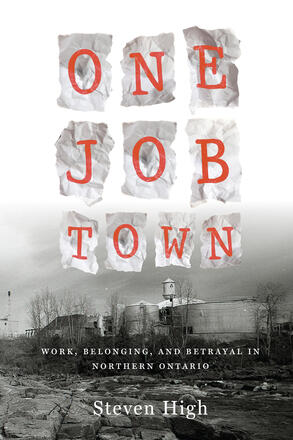
One Job Town
Work, Belonging, and Betrayal in Northern Ontario
Description
There’s a pervasive sense of betrayal in areas scarred by mine, mill and factory closures. Steven High’s One Job Town delves into the long history of deindustrialization in the paper-making town of Sturgeon Falls, Ontario, located on Canada’s resource periphery. Much like hundreds of other towns and cities across North America and Europe, Sturgeon Falls has lost their primary source of industry, resulting in the displacement of workers and their families.
One Job Town takes us into the making of a culture of industrialism and the significance of industrial work for mill-working families. One Job Town approaches deindustrialization as a long term, economic, political, and cultural process, which did not begin and simply end with the closure of the local mill in 2002. High examines the work-life histories of fifty paper mill workers and managers, as well as city officials, to gain an in-depth understanding of the impact of the formation and dissolution of a culture of industrialism. Oral history and memory are at the heart of One Job Town, challenging us to rethink the relationship between the past and the present in what was formerly known as the industrialized world.
Awards
- Winner, The Clio Ontario Region Prize awarded by the Canadian Historical Association 2019
- Winner, 2018 OHS Fred Landon Award awarded by the Ontario Historical Society 2019
Reviews
"One Job Town is simply one of the finest books written about Northern Ontario. It is a model study that the academic community and, more importantly, those living in Northern Ontario will be excited about."
- Michel S. Beaulieu, Lakehead University